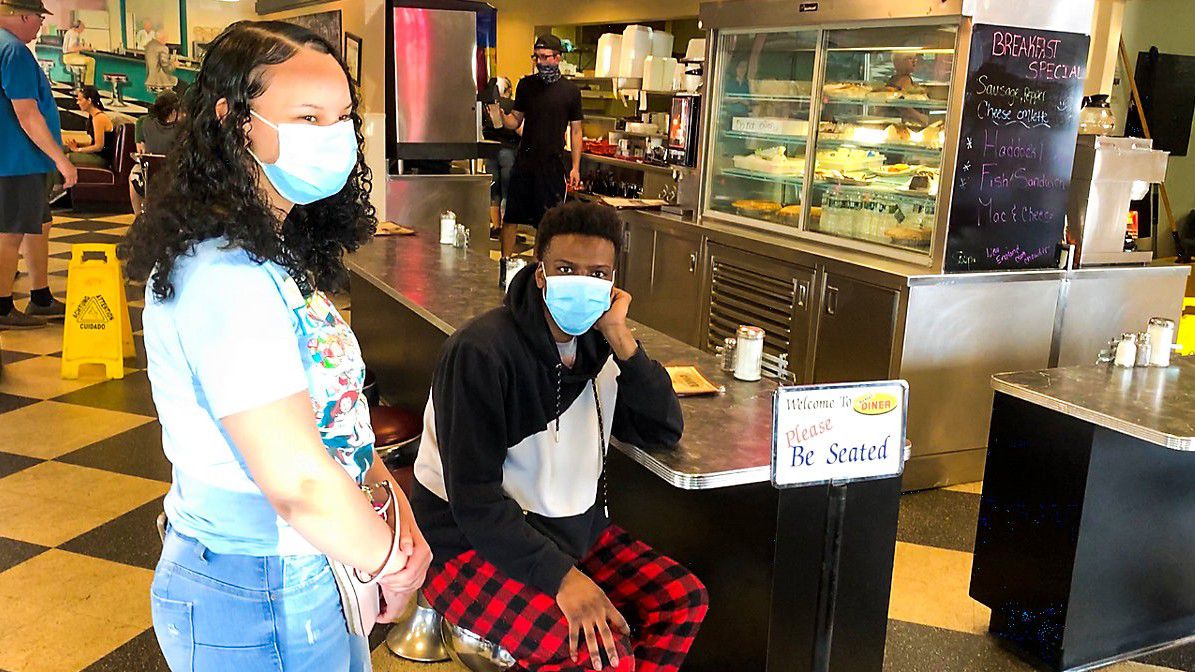TAMPA — Tampa Bay area medical experts are clarifying some of the confusion over the updated face covering guidance from the Centers for Disease Control and Prevention.
The agency recommends everyone in K-through-12 schools mask up indoors.
That includes fully vaccinated people to wear masks inside in areas of the country with high transmission of COVID-19.
CDC data shows virtually the entire state of Florida has high levels of transmission.
The new guidance amounts to changes for nearly two-thirds of the country right now.
To clarify, the CDC said on Tuesday the main driver of the virus spreading right now is people who are unvaccinated and are not following protocols.
We spoke to USF Professor of Medicine, Dr. Michael Teng, who’s also a research virologist.
- Someone who's vaccinated can spread the virus or be contagious. You can still get sick even if you are vaccinated, so then how contagious are you?
"Yeah. I'm not familiar with the data that CDC is talking about so I will kind talk about this theoretically. The virus grows faster and grows to a larger amount so that people who are infected with delta have more virus and the virus comes up earlier."
- How does that work? You're contagious even if vaccinated?
"The way this could work for people that transmit is if it comes up too quickly the immune system doesn't have the time to ramp up its defenses to try to knock it down. You will still have a higher amount of virus coming out of you and in those cases in that time period where the virus is growing and the immune system is still trying to catch up then you could be able to transmit the virus."
- You say there's a small window and it could impact whether you’re vaccinated or not. Is it something to worry about?
"I would also caution that this is not that common. You would generally see this in symptomatically infected people. We know that the vaccine in general is not 100%. So there are some people who will get infected, will be symptomatic and I think people who are symptomatic with delta, hospitalized with delta have enough virus with them that they will be able to be infectious."
- Then how do the masks work to help stop the spread?
"Yeah...so the mask is there for two reasons. One to protect you from whatever is coming out but more importantly it's to protect you from spreading stuff. We call it infection control or source control and you’re the source. And basically, if you’re breathing out through your mask, most of that stuff is going to get trapped in your mask. The air doesn’t go as far, so the droplets don’t spread as much."
Studies done during the pandemic have also looked at the efficacy of face coverings to prevent spread.
One study published in the Proceedings of the National Academy of Sciences in January compiled data from around the world.
It found “evidence suggests that near-universal adoption of nonmedical masks when out in public, could successfully reduce…community spread."
Another published in November in Journal of the American Medical Association found "hospital-based outbreaks have not revealed a failure of universal masking, but rather challenges…to maintain masking adherence."
Another study from the UK’s Lancet found masks work if there is buy-in from society.
One study back in September tailored for education in the journal Trends in Neuroscience and Education pointed out a negative of masks "Face masks can prevent the spread of the virus...However, reduces the ability to communicate.”



